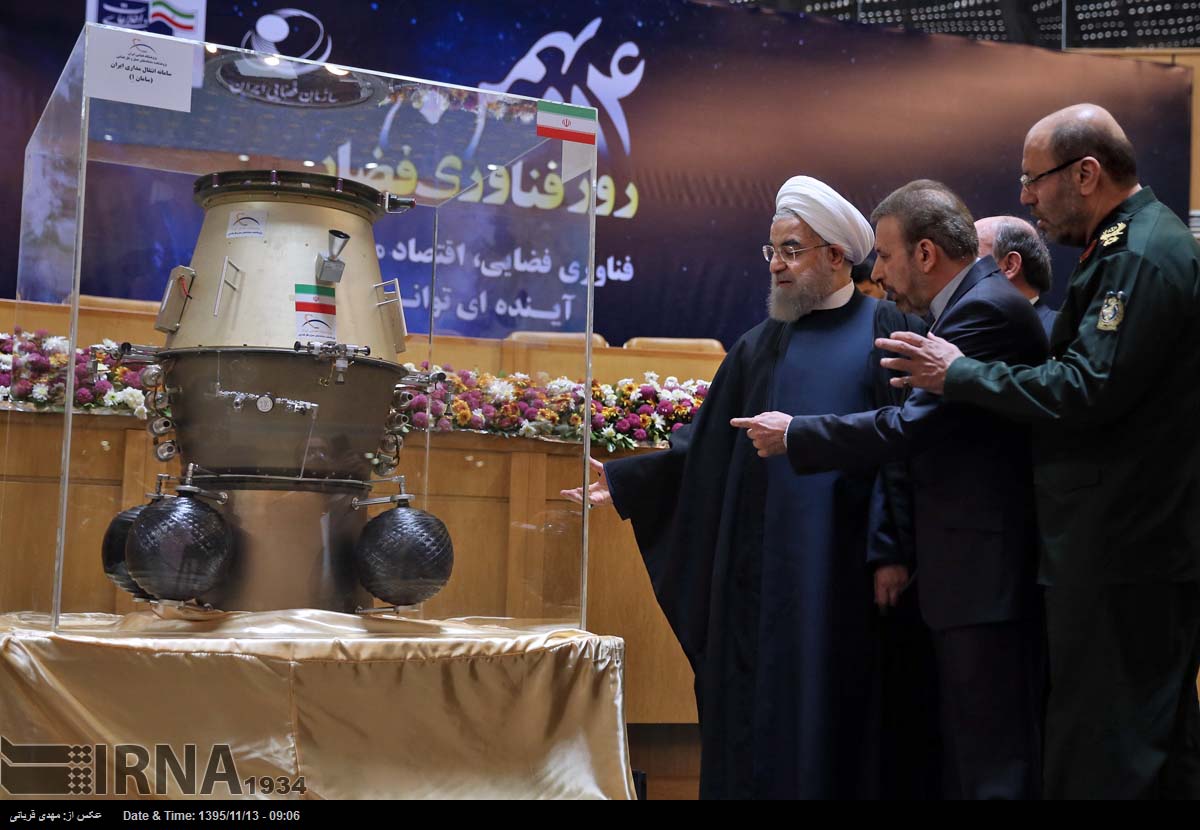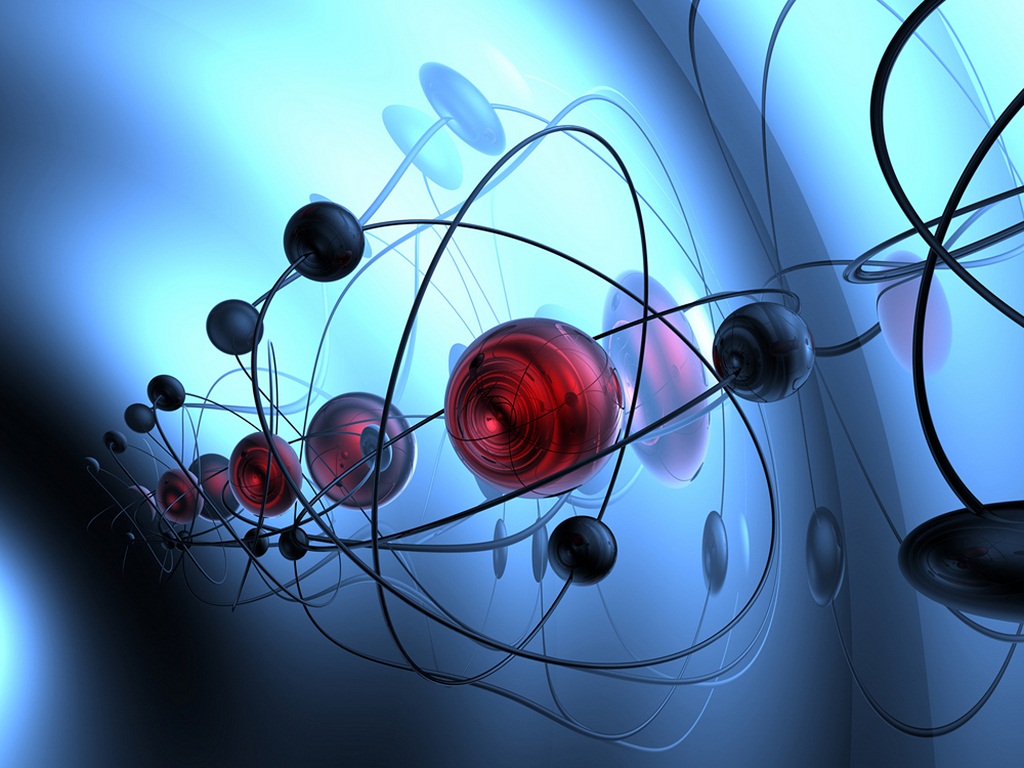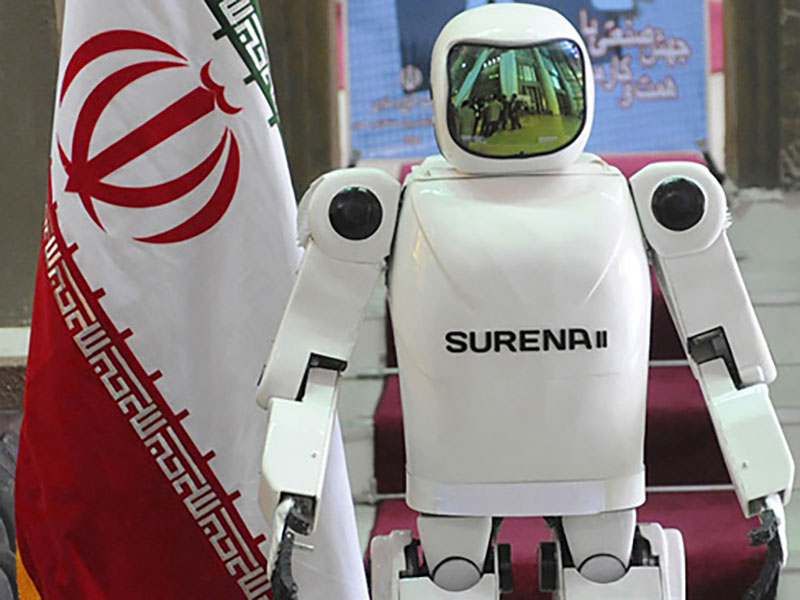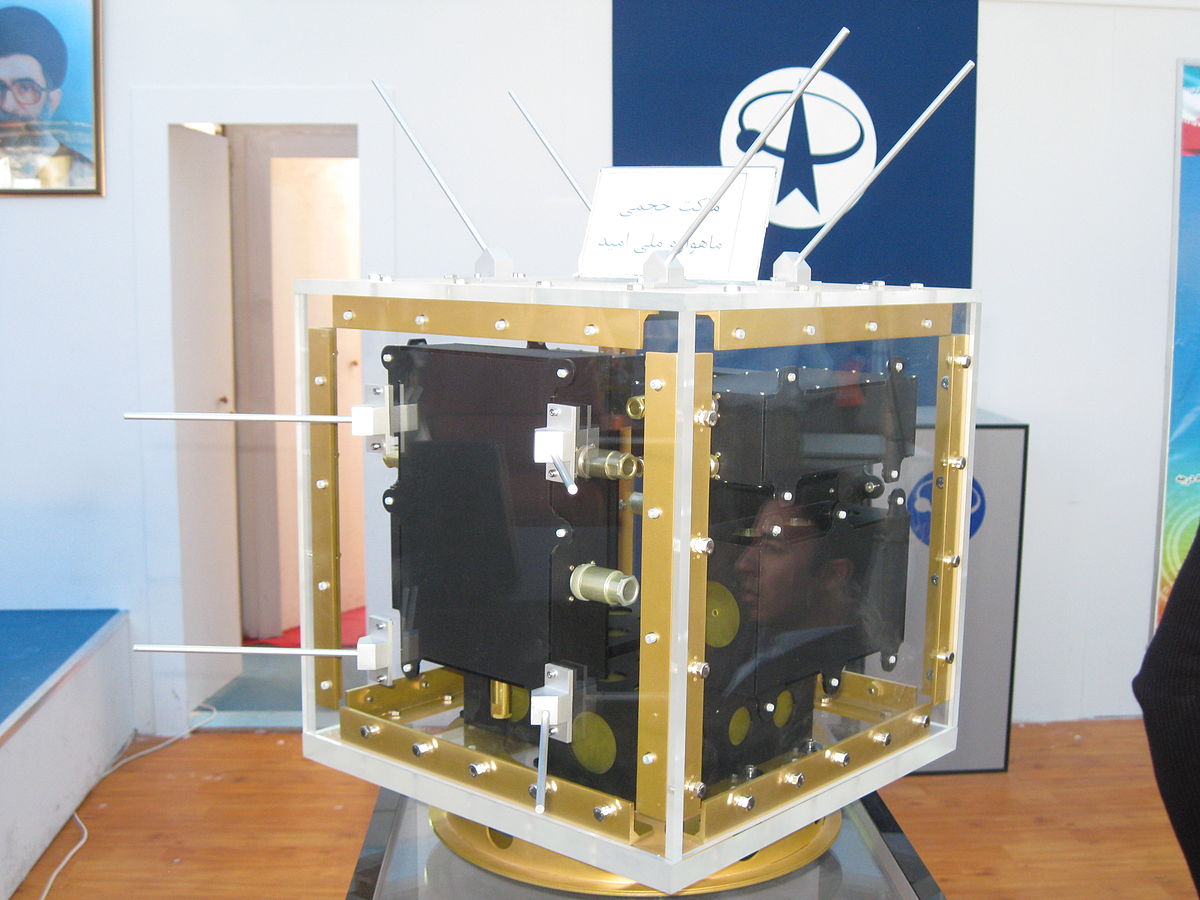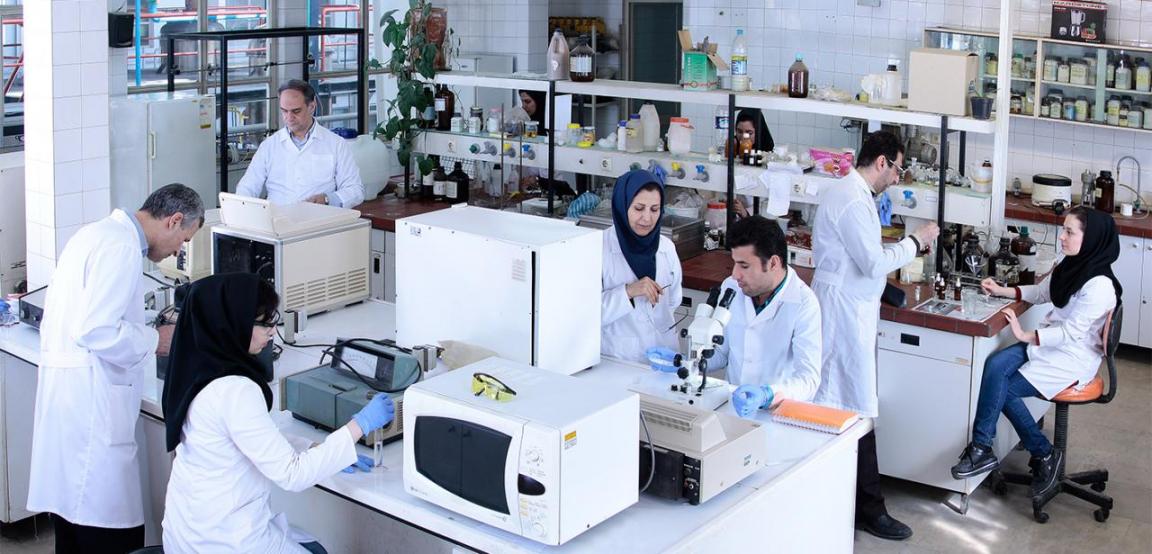Nanoparticles Increase Durability of Concrete Decorations in Cold Areas
Iranian researchers from Isfahan University of Technology studied the effect of nanoparticles on increasing the durability and lifetime of concrete decorations in cold areas. Outcomes of the research have applications in road construction industry. Results of the research have been published in construction and Building Materials, vol. 48, 2013, pp. 580-584.
Elimination of bacterial microorganisms by Nanoparticles
Iranian researchers from Kerman University of Medical Sciences studied the effect of nanoparticles on bacterial biofilms (groups of bacterial microorganisms in which cells stick to each other on a surface) to find new methods for the treatment of bacteria infectious diseases. Results of the research have been published in Journal of Trace Elements in Medicine and Biology, vol. 29, issue 1, 2015, pp. 235-241.
Iran Designs Nano Medicine-Career Easing Chemotherapy Side Effects
Iranian researchers at the Amirkabir University of Technology produced a Nano medicine-career for prostate cancer, expected to reduce chemotherapy side effects. Using the medicine-career produced for prostate cancer treatment, the medicine remains in blood and activates smartly especially for patients suffering cancer genetically. The system does not release poison in body when released.
Self-sufficiency in producing cryogenic oil pumps
Iran has achieved self-sufficiency in designing and producing cryogenic pumps of gas, oil and petrochemical industries. The most important function of these pumps is pumping the liquid propane gas in a temperature of -50 c from refineries to the tankers to be loaded and exported. Iran, after US, Japan and Germany, is the fourth country to reach the technological knowledge of producing these industrial pumps. Self-sufficiency in the production of these pumps would save more than $400 million annually for the country and its production cost is cut by half.
Iranians invent soft tissue dental laser
Researchers at the Iranian National Center of Laser Science and Technology have invented a laser with application in soft tissue dentistry surgeries. Soft tissue dental laser
differs from traditional methods in that it is more efficient and often faster. There is less post-operative discomfort for the patient and bacteria levels in affected areas are reduced and there is virtually no collateral damage to healthy tissue.
Researchers Boost Solar Cells Efficiency Using Anti-Aggregates
Iranian researchers designed and built solar cells doing well in converting solar energy into electricity, using Nano-technology. In the project low-price and available materials has been used. The product can be used in centers using powers and solar cells. The results of the project have been published in Materials Technology Journal.
Nano Drug Delivery System Helps Efforts to Cure Bacterial Infections
Iranian researchers from Mashhad University of Medical Sciences applied nanotechnology to treat bacterial infections. A nano drug delivery system was designed in this research, which has successful performance against antibiotic-resistant infections. After the completion of animal and human tests, the results of the research can be used in pharmaceutical industries. Results of the research have been published in Pharmaceutical Biology, vol. 52, issue 11, 2014, pp. 1423-1428.
Iranian Researchers Planning to Produce Edible Insulin
Iranian researchers of Tehran University of Medical Sciences studied and produced a Nano drug system at laboratorial scale to achieve edible insulin. The results showed that the medical nano-drug prevents insulin destruction and improves permeability of insulin large molecules into monolayer cells of the intestinal wall. The nano-carrier delays insulin release and boosts its permeability into intestinal wall.
Iran produces laser device boosting natural cell healing
Iranian researchers at the National Center for Laser Science and Technology managed to produce a device to eliminate certain types of pain, including any post-surgery pains. The device is in low-level laser function which is a kind of cold laser therapy and makes positive changes at the cellular level of the body. Low level laser therapy device can be applied for burns, keloids, post-surgical pains and is useful to accelerate wound healing, to reduce
inflammation and infection and to increase the life of skin grafts. This device, since low-powered, should be used continuously for up to two months to show its efficacy.
Performance Drop in Solar Cells Prevented by Nanotechnology
Iranian researchers used nanotechnology to produce solar cells that have high efficiency in the conversion of solar energy to electricity. Efforts have been made in this research to use cheap and available raw materials. In this study adding some anti-accumulation agent increases the sorption of organic dye materials and decreases their accumulation on the surface of titanium dioxide nanoparticles. In addition, it also increases the efficiency of the conversion of light to electricity. Results of the research have been published in Materials Technology, vol. 30, issue 3, 2015, pp. 189-192.
Iran designs 3D system imaging drug distribution in animals’ body
Iranian researchers have developed a 3D device to image drug distribution in animals, hoping that they can mass produce the system with receiving European standard certificate. The device has been designed for investigation of distributing drugs and medicines and early diagnosis of cancer in animals’ body too. The device scans and images animals’ body layer by layer using laser. Researchers working on fundamental science, biochemistry and immunology can use results of the study. The device can be used for small animals, including rat and not for large ones such as rabbit. It has got Conformity European certificate.
Nanomaterials Used to Reduce Heat Generated by LED Panels
Iranian researchers from Shahid Bahonar University of Kerman in a joint research with their counterparts from Amirkabir University of Technology produced nanostructures that can be used in LED panels of TVs and computers. The nanostructure can be produced through a simple and cost-effective method. Results of the research have been published in Journal of Industrial and Engineering Chemistry, vol. 21, issue 1, 2015, pp. 1132-1136.
Iran sends 4th satellite to space
On the eve of the National Day of Space Technology, Iran’s 4th domestically manufactured satellite named ‘Fajr’ was launched into space and successfully put into orbit. The satellite which developed by indigenous technology and know-how indicates the high
capabilities of Iran’s satellite-carriers. By the chance to develop and design a new generation of satellite-carriers Iran has already entered the world market of space services.
Breaking US monopoly in prostate cancer drug
Iranian researchers in Polymer and Petrochemical Institute could set up the production line of prostate cancer drug which was exclusively confined to the US. Iran is the world’s second producer of this type of medication and the produced drug in Iran is equivalent to the American version. The drug is also used to treat diseases related to uterine fibroids and infertility in women. Iran now in addition to providing the domestic needs, can export the drug to other countries such as Yemen and Syria too.
Iranian Scientists Apply Nanofibers to Produce Light Thermal Insulators
Iranian researchers from Amirkabir University of Technology studied the application of nanofibers in the structure of thermal insulators to increase their performance and decrease the final price. Results of the research increase the efficiency of the product but decrease its thickness and weight, and the product can be applied in construction industries. Although the sample produced in this research has higher performance and lower price in comparison with common thermal insulators, the researchers are still focusing on the improvement of the performance and decreasing the price. Results of the research have been published in Advances in Polymer Technology, vol. 33, issue S1, 2014, pp. 21440-1 to 21440-8.
Iran builds self-charging wheelchair
Alireza Khodakaramzadeh, a chemical engineering student at Sharif University and has invented a wheelchair which stores energy to provide longer travel distance for users. The flywheel used in this type of wheelchair can store energy from pedaling and releases it gradually so that the person can go greater distance without rolling the wheels. The newly invented wheelchair has been participated in Tehran and Alborz Invention & Innovation Festival and holds three levels of National Elites Foundation.
Production of New Nanocatalyst with Numerous Applications
Iranian researchers from Birjand University used nanotechnology and produced a magnetic nanocatalyst that can be used many times without any reduction in its activity. The nanocatalyst will have applications in industries, including production of chemicals such as
pharmaceutics, oil and petrochemicals. Results of the research have been published in RSC Advances, vol. 4, issue 105, 2014, pp. 60702-60710.
Iran breaks German monopoly in type 2 diabetes drug
A pharmaceutical company of Iran has produced a drug to treat type 2diabetes which has exclusively been confined to Germany. Each German package of the drug, which is called Ziptin is sold $77 on the market with no importing company in charge; however, the domestic drug is now sold for only $8.
New Anti-Alzheimer’s Drug from Saffron for 1st time
Researchers of Tehran Medical Sciences University cooperating with a science-based company for the1st time in world have made a new kind of anti-Alzheimer’s disease medicine from saffron following a ten-year research studies. There are only five effective medicines for the Alzheimer’s disease in the world today and Safrotin’s effects exactly match those of the best of its foreign equivalent medicines, minus their side-effects. The drug has also anti-cancer effects which have been approved by world medical circles.
Using Nanotechnology to Boost Oil Extraction
Iranian researchers from Sahand University of Technology and Islamic Azad University studied the effect of using nanoparticles on increasing oil extraction from reservoirs. According to the researchers, the use of nanoparticles increases oil extraction and decreases the costs of the process. Results of the research have been published in Petroleum Science and Technology, vol. 33, issue 1, 2015, pp. 79-85.
Low-Price Nano-Method for Water Treatment
Iranian researchers designed a new cost-effective method for water purification, separating heavy metals from water using nano-technology. The method uses nano-cavitation and activated alumina with the capacity of 40 liters per second. Nano-cavitation method eliminates arsenic from soft water and reduces the costs to one third.

